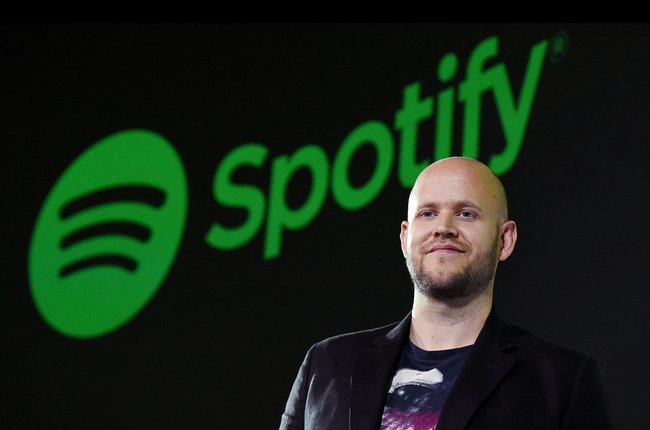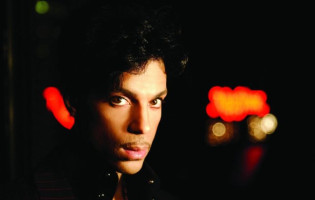At a critical moment for Spotify, a legal battle is escalating manifold against the the digital music service that has led the charge on the subscription streaming front. The Stockholm, Sweden-based company has reportedly met with U.S. regulators to discuss a plan to list shares on the New York Stock Exchange. Meanwhile, Spotify is facing an army of angry songwriters and publishers.
On Tuesday (Sept. 12), some big names made an appearance in court to challenge what Spotify proposes to give to them to make up for past sins. And on Wednesday, the streaming giant was hit with a new lawsuit as well as a scathing reply to a provocative legal argument that Spotify advanced two weeks ago.
With a proposed $43 million settlement announced in May to potentially resolve a class action lawsuit, Spotify had perhaps hoped to move past any copyright troubles in advance of a stock sell that could value the company north of $10 billion. The plaintiffs in that case had alleged that Spotify hasn't adequately paid mechanical licenses for song compositions. A deal was struck, but it still requires a judge's approval.
Now, hundreds of musicians and publishers are coming forward to object to the $43 million deal. Among those voicing dissent are Tom Petty, Zack de la Rochaand Tom Morello of Rage Against the Machine, The Black Keys' Dan Auerbach, Weezer's Rivers Cuomo, David Cassidy, Sonny Bono's heirs, Kenny Rogers, Kim Gordon and on and on. (Many are associated with Wixen Music Publishing.) Even the actor Anthony Hopkins, who has dabbled in classical music, has joined the ranks of objectors.
"The Settlement Agreement is procedurally and substantively unfair to Settlement Class Members because it prevents meaningful participation by rights holders and offers them an unfair dollar amount in light of Spotify’s ongoing, willful copyright infringement of their works," states the group in a court filing (here).
After attorney fees, just $28.7 million is proposed to compensate songwriters and publishers — and the objectors say that's not nearly enough.
"According to its own publicity, Spotify has about 30 million songs," continues the filing. "If as few as one-quarter of those songs, 7.5 million, were unlicensed then, taking the $28.7 million left in the Settlement Fund after attorneys’ fees are paid and dividing that number by 7.5 million songs, the result is a settlement payment of $3.82 per infringed song. As the Court is well aware, Spotify faces potential liability of up to $150,000 per infringed composition for willful infringement and $30,000 for nonwillful infringement, plus attorneys’ fees and costs. While a discount of some amount is to be reasonably expected as part of a compromise settlement, the discount potentially afforded Spotify in this case is a 98.7% discount for nonwillful infringement and a discount for willful infringement so close to 100% as to give Spotify a practical free pass on willful infringement."
Even if the objection fails, each of these musicians could potentially opt out of the deal and bring their own claims. (The awarding of full potential statutory damages is unlikely even if Spotify is held liable, but under the 7.5 million scenario above, it would represent 1.125 trillion dollars in theoretical damages.) Some have already moved ahead on that front.
In July, Spotify was hit with two lawsuits, including one from Bob Gaudio, a songwriter and founding member of the group Frankie Valli and the Four Seasons. Wednesday brought another from a group of publishers (A4V Digital, Lakshmi Puja, Lindabet Music...) whose works include "Heart," "Whatever Lola Wants (Lola Gets)" and "When You're Smiling."
All three lawsuits are being handled by Richard Busch, the attorney perhaps most famous for representing the Marvin Gaye family during the "Blurred Lines" case.
In response to the first two lawsuits, Spotify demanded a more definitive statement of how it allegedly committed copyright infringement. In doing so, the company put forward an argument that "streaming" implicates neither reproduction nor distribution rights under copyright law.
That suggestion was akin to a grenade for the publishing community — with insiders speculating about Spotify's motives. Was it a tactical move to force the plaintiffs to spend money on litigation? Was it to deter those who might opt out of the class action settlement? Or did Spotify really intend to move forward on the proposition that mechanical licenses weren't needed regardless of what Spotify had previously represented at the U.S. Copyright Office and elsewhere?
The answer may come in time. But in the meantime, Busch had submitted a reply brief (read in full here). The Nashville-based lawyer attacks the Spotify's motion for allegedly wasting judicial resources and claims it was filed in bad faith. He adds that it's unimaginable that Spotify can't figure out what's being alleged given that Spotify has faced similar allegations including in the class action lawsuit.
As to the substantive points about reproduction, Busch writes that should be an undisputed point.
"It is clear that mechanical licenses are required to engage in the process of interactive streaming, and the industry has reached a consensus on this topic," states the reply that poses Spotify's apparent new position as running contrary to copyright law, the code of federal regulations, established case law, Spotify's own licensing practices, statements by Spotify's agents, the Harry Fox Agency and logic.
Busch emphasizes that Spotify is an interactive service even by its own admission. Under copyright law, that has special significance.
"It is telling, and clearly intentional, that Defendant only cites authority relating to Pandora, Sirius XM Radio, and other non-interactive services, rather than interactive services such as Spotify," writes Busch. "Numerous courts and other sources have specifically noted the distinction between Spotify’s interactive streaming service and other non-interactive services. ... While Pandora (or the other non-interactive services cited by Spotify in its Motion) may be able to get by on public performance licenses alone, the same cannot be said of Spotify and its interactive streaming service. Once this distinction is taken into account, one need not look further than the very case law cited by Defendant to realize where Defendant’s argument falls apart."
As noted above, Spotify does pay for the performance of compositions, via blanket licenses obtained from ASCAP and BMI, but the publishing industry hasn't enjoyed the fruits of direct deals. That's in part due to the compulsory nature of licensing compositions. In the past, Spotify has acknowledged lapses in obtaining mechanical rights due to the difficulty of identifying and locating the co-authors of each of the tens of millions of copyrighted musical works throughout its streaming platform.
Spotify's dealings with the record labels have arguably been much more generous. In fact, the majors like Sony and Universal have obtained equity stakes in Spotify as a result of their own licensing deals over sound recordings. Those shares stand to be worth hundreds of millions once Spotify goes public. Before that happens, some publishers are clearly kicking up a storm, using the leverage that comes from the prospect of willful infringement damages to put Spotify on the defensive at this exigent moment.
This article was originally published by The Hollywood Reporter








